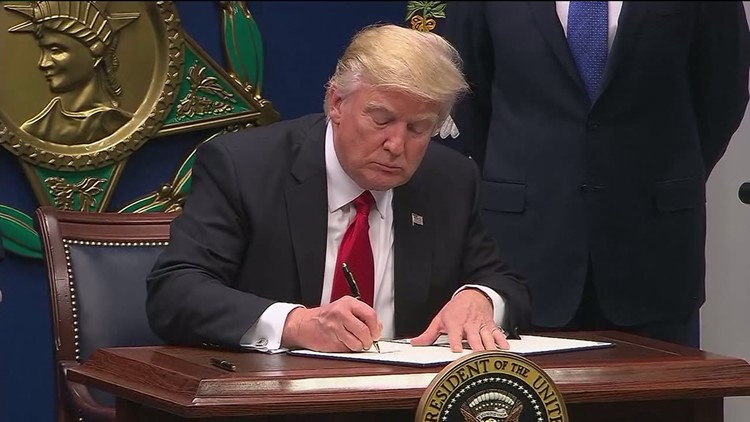WILKES-BARRE -- At the core of those protesting President Trump's executive action over the weekend are two concerns -- is the ban constitutional and how much power does a president really have?
We spoke with a civil rights lawyer and a professor who teaches constitutional law in Wilkes-Barre. Both gave us more insight into a president's power through executive orders.
In President Trump's first week in office, he utilized that power heavily. But both experts also weighed in on how his order on immigration stands up to existing laws and the U.S. Constitution.
In his first week, Trump quickly put pen to paper signing more than a dozen executive orders, including one setting off protesters around the country over the order to ban immigrants traveling here from seven Muslim-majority countries.
"This order is grossly unconstitutional," said Barry Dyller.
Dyller has been a civil rights lawyer in Wilkes-Barre for over 30 years and explains the president's executive order on immigration violates current law and several international treaties, something an executive order cannot do.
"An executive order is supposed to be how the president implements or applies the law. But the president cannot make law. This executive order appears to be saying, 'I don't care about the law,'" Dyller said.
The current Immigration and Nationality Act allows a president broad authority over who can and cannot immigrate to this country. That seems to be the principal argument for President Trump's executive order. But even in that act, a president cannot discriminate based on religion.
Furthermore, any person detained under the order is entitled to constitutional due process.
"I would argue the biggest problem, and the problem that the judge found is the due process clause. The due process clause says if the government attempts to limit the liberty of any individual on American soil, they must follow certain procedures," explained constitutional law professor Kyle Kreider.
Kreider is a constitutional law professor at Wilkes University. He believes the confusion over the constitutionality of the president's executive order on immigration stems from the broadness of the order.
"The executive order was written in such a rash, quick fashion that it was not properly vetted. That the people on the ground who had to enforce and execute the order, there was no agreement on what the order required them to do. When you get that, then you get into the area of arbitrary behavior and that seems to violate due process guaranteed by the Fifth Amendment."
Republican U.S. Senator Pat Toomey issued a statement Monday saying, in part, "the initial executive order was flawed. It was too broad and poorly explained."
He also went on to say that he supports the ban after some clarification of it by the administration.



